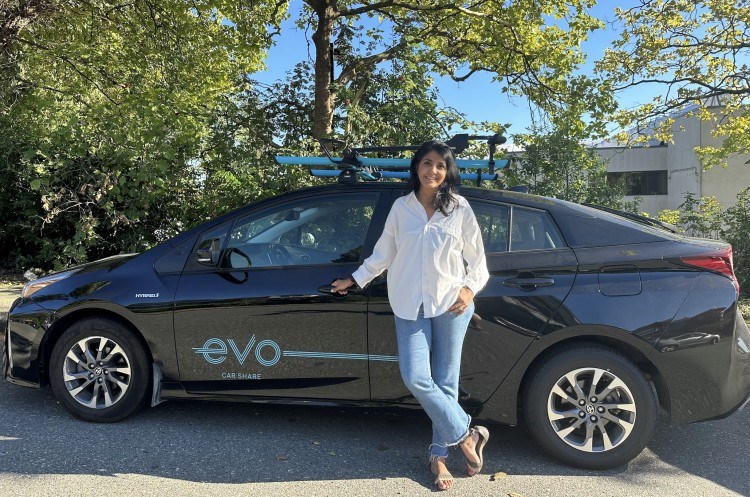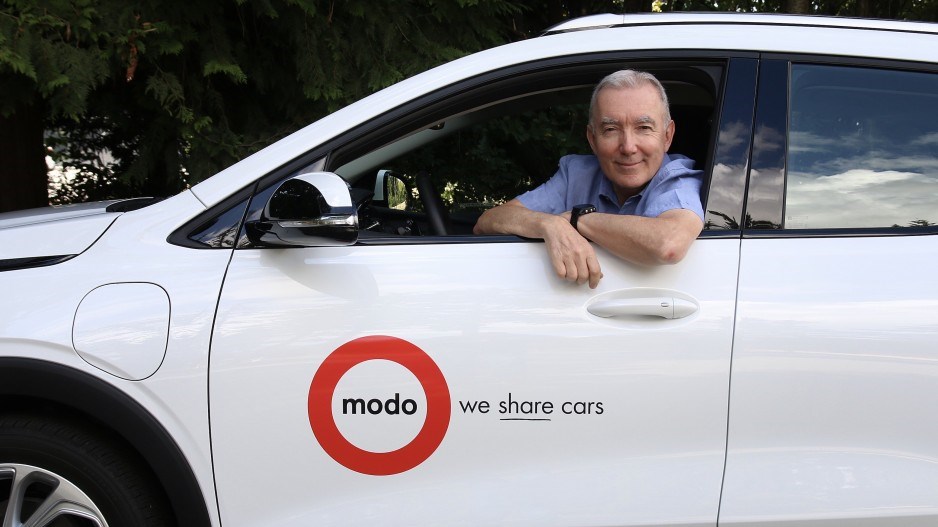TransLink is creating an intermodal transportation app that customers could use to manage trips on public transit as well as car-share and bike-share services.
While it is unclear exactly when the app is to be released, the initiative is a follow-up pilot project after a much smaller one that took place between October 2019 and August 2020.
While that initial pilot project involved only 161 employees from 13 local employers, the next pilot project is expected to be open to the general public, Modo CEO Patrick Nangle told BIV.
The first shared-mobility pilot project involved a card while the second one is expected to have an app. Both are expected to involve TransLink, Evo, Modo and Mobi Bike Share.
Those who use the app would have to separately buy stored value or monthly TransLink passes as well as car-share and bike-share memberships with no discounts for bundling those purchases in the beginning, Nangle said.
It is possible that bundled discounts could eventually be offered, he added. It is also possible that if the program is successful, it could be expanded to also include False Creek Ferries, the Aquabus and the new Hullo ferry service between downtown Vancouver and Nanaimo.
The key driver at the start is to provide convenience, not savings.
"The idea is that you would get access through a single app to these various services so you could stitch trips together and the payment would be simplified," he said.
TransLink spokeswoman Shruti Prakash confirmed to BIV that her agency is working to make a follow-up project a reality.
"Details of this expansion are not yet finalized," she said. "We will have more to say in the coming months."
A report on the initial pilot project showed that 75 per cent of those included in the experiment used their card at least once. Of those, 91 per cent used the card at least twice.
A survey of the participants found that 60 per cent said that using their shared-mobility-project card meant that they did not need to use their cars.
Car-share companies see rise in membership, fleets
Vancouver has fewer car-share options today than at the start of this decade, but the two ventures that remain – Modo and Evo – are larger and stronger.
Evo has 2,300 Toyota Priuses, up from about 1,500 in early 2020, its director Amitis Khorsandi told BIV. Modo recently put its 1,000th car on the road, up a few hundred from a few years ago, according to Nangle.

Evo director Amitis Khorsandi stands next to one of her company's approximately 2,300 vehicles. | Evo
Evo and Modo have likely benefited from the region's car-share options shrinking. Car2Go halted operations at the end of February 2020. Zipcar then pulled its cars from the Vancouver market at the end of April 2020.
While those exits came at the start of the COVID-19 pandemic, the businesses did not cite that as the main reason to leave Vancouver.
Car2Go announced its intention to stop North American operations before the pandemic disrupted society and movement. Zipcar said its exit from Vancouver stemmed from "complexities" of operating in B.C., which included insurance regulations. It continues to operate across North America.
The Insurance Corp. of British Columbia (ICBC) said at the time that Zipcar had been insuring its vehicles as rental cars, and not car-share vehicles, so Zipcar could intermingle the cars with the company's Avis rental-vehicle business. Had Zipcar insured the vehicles as car-share vehicles, insurance would have costed less and the B.C. business may have been viable.
Regardless, Evo and Modo have been beneficiaries.
The two ventures compete but because they offer significantly different services, executives say many people have memberships in both services.
BCAA-owned Evo's 200,000 members can book one-way trips in the venture's 2,300 vehicles in the Lower Mainland and Victoria. Modo's 30,000 members can access approximately 1,000 vehicles to make two-way trips in 25 municipalities across B.C. Most of Modo's vehicles are in the Lower Mainland.
Nangle and Khorsandi told BIV that their sign-up processes are simple. New members need to authorize ICBC to release their driving records to the companies.
Nangle said the sign-up process and authorization can be done as quickly as 24 hours.
Evo has the simpler fee structure.
It charges members by how long they have the vehicles, with rates starting at $0.49 per minute, and declining when users have vehicles for an hour or more. It also charges a $2 annual fee.
Modo has different tiers of fees, with preferential rates going to members who have bought shares in the co-operative for a one-time refundable $500 payment. It then has a mix of charges for time and distance travelled, and a $1 annual fee.
"We're all about giving people as much flexibility to do anything they want," Khorsandi said.
"It's about convenience. It's about affordability. It's about letting you do what you need to do when you need to do it."

